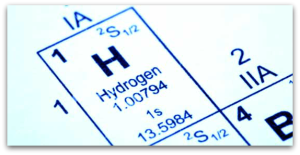 Recently, a small explosion occurred underneath the sand at a Rhode Island beach. When state police and a bomb squad couldn’t figure out what caused the blast, researchers from the University of Rhode Island decided to make an attempt at solving the mystery.
Recently, a small explosion occurred underneath the sand at a Rhode Island beach. When state police and a bomb squad couldn’t figure out what caused the blast, researchers from the University of Rhode Island decided to make an attempt at solving the mystery.
The school’s oceanography interdisciplinary team—made up of researchers with expertise in everything from geology to chemistry—was able to pinpoint an unlikely culprit in the beach explosion: hydrogen.
An Unlikely Investigation
The researchers first began to suspect hydrogen when they discovered an underground uncorroded copper cable at the site, which could create hydrogen though an electrochemical process.
“The copper was like a shiny new penny, and the steel was silvery, even though it had been in seawater for many years,” said Professor Arthur Spivack of the University of Rhode Island. “That told me that it was consistent with there being a slight negative voltage in that end of the cable, which protects it from corroding but also could produce hydrogen.”


